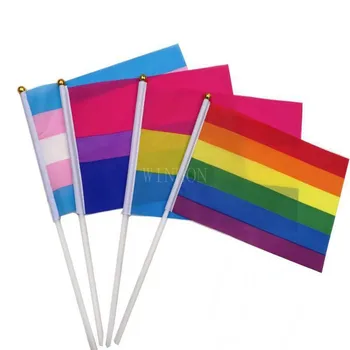BI Flag
- Buy on Amazon
- Buy on Amazon
- Buy on AmazonBI Flag
60×90 90×150 120×180CM Bisexual Pride Flag Polyester Printed Banner Tapestry For Decor
$4.11 – $13.50 - Buy on Amazon
- Buy on Amazon
- Buy on Amazon
- Buy on Amazon
- Buy on Amazon
- Buy on Amazon
- Buy on AmazonBI Flag
FLAGHUB 60X90 90X150cm LGBT Bi Bisexual Pride Flag Of Bisexuality For Decoration
$4.19 – $4.24 - Buy on Amazon
- Buy on Amazon
- Buy on Amazon
- Buy on Amazon
- Buy on Amazon
- Buy on Amazon
- Buy on Amazon
- Buy on Amazon
- Buy on Amazon
- Buy on AmazonBI Flag
Xiangying 90x150cm Lesbian Gay Bisexual Transgender Pansexual Human LGBT Pride Flag
$5.34 – $8.34 - Buy on Amazon
- Buy on Amazon
Significance of the BI Flag
We’ll delve into the vibrant and meaningful symbol of the Bisexual Flag, often referred to as the BI flag. We’ll explore its origins, significance, and the impact it has had on the LGBTQ+ community worldwide.
What is the Bisexual Flag?
The Bisexual Flag is a representation of the bisexual community, designed to provide visibility and unity among individuals who identify as bisexual. It consists of three horizontal stripes of equal width – pink, purple, and blue. Each color holds a specific meaning, which we’ll explore in detail later in this article.
Historical Context: The Evolution of the BI Flag
Understanding the history behind the Bisexual Flag helps contextualize its significance within the LGBTQ+ movement.
Development and Adoption: Unveiling the BI Flag
The Bisexual Flag was first unveiled in 1998 by Michael Page, an activist, and bisexual pride organizer. Page sought to create a symbol that would represent the unique experiences and challenges faced by individuals who are attracted to more than one gender. Since its introduction, the flag has gained widespread acceptance and is prominently displayed at LGBTQ+ events, rallies, and pride parades.
Symbolism of Colors: Decoding the Meaning Behind the BI Flag
Each color in the Bisexual Flag carries symbolic meaning, reflecting various aspects of the bisexual experience.
Pink Stripe: Representing Same-Gender Attraction
The pink stripe represents attraction to the same gender, acknowledging the romantic and emotional connections that bisexual individuals may form with people of the same sex.
Purple Stripe: Signifying Fluidity and Diversity
The purple stripe symbolizes the overlap between attraction to both genders, signifying fluidity, and the recognition of diverse forms of attraction beyond binary distinctions.
Blue Stripe: Embracing Opposite-Gender Attraction
The blue stripe represents attraction to the opposite gender, highlighting the romantic and emotional connections that bisexual individuals may have with people of different genders.
Community Recognition: Celebrating Visibility and Unity
The Bisexual Flag serves as a powerful emblem of visibility and solidarity within the bisexual community.
Representation in Media and Culture: Amplifying BI Flag Visibility
Over the years, the Bisexual Flag has become increasingly visible in mainstream media, appearing in television shows, films, and social media campaigns. Its presence serves to validate the experiences of bisexual individuals and challenge stereotypes and misconceptions.
Challenges and Progress: Navigating BI Flag Advocacy
While the Bisexual Flag has contributed to greater visibility and acceptance, bisexual individuals still face unique challenges and prejudices within society.
Bisexual Erasure: Addressing BI Flag Visibility
Bisexual erasure refers to the tendency to overlook or invalidate the identities of bisexual individuals, both within the LGBTQ+ community and in broader society. This phenomenon perpetuates harmful stereotypes and contributes to feelings of isolation and marginalization.
Advocacy and Awareness: Promoting BI Flag Visibility
Despite these challenges, advocacy efforts aimed at promoting bisexual visibility and awareness have made significant strides in recent years. Organizations and activists continue to raise awareness about bisexuality, combat stigma, and advocate for greater inclusion and representation.
Embracing the BI Flag’s Impact and Legacy
In conclusion, the Bisexual Flag serves as a powerful symbol of visibility, unity, and pride for individuals who identify as bisexual. Its vibrant colors and symbolic meaning reflect the diverse experiences and identities within the bisexual community. By raising awareness, challenging stereotypes, and advocating for inclusivity, the Bisexual Flag plays a vital role in advancing LGBTQ+ rights and fostering a more accepting and inclusive society.




















